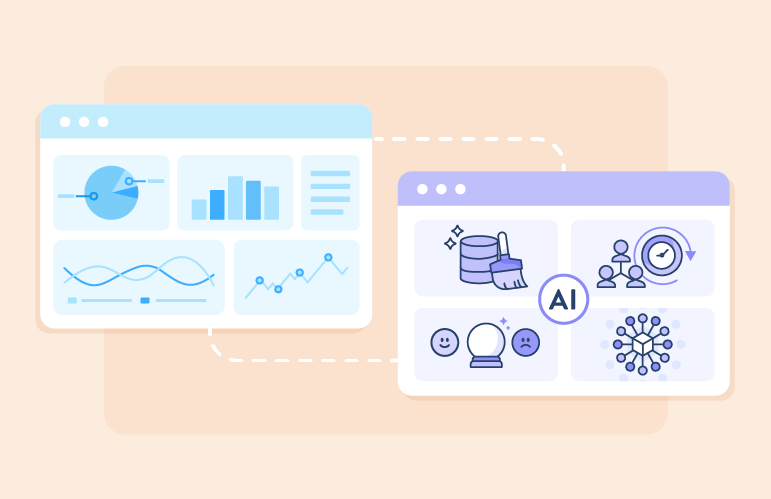AI and CDP: The Winning Duo for Precision Targeting


Category: AI for CRM
Amazon's recent $4 billion investment in Anthropic, a generative AI company, highlights the growing role of artificial intelligence on online commerce.
This shift raises a key question for CRM managers : how can they leverage this technological breakthrought to turn customer data into revenue ? The answer lies in the powerful synergy between AI and Customer Data Platforms (CDPs).
This new paradigm transforms data into a strategic asset, unlocking advanced marketing capabilities and paving the way for smarter targeting and hyper-personalized experiences. It's transforming how business engage with their customers.
The customer journey is a strategic sequence, where every touchpoint matters. From initial discovery to comparison, reflection, and final purchase, each interaction reveals valuable insights into preferences, hesitations, and motivations.
By combining AI with a Customer Data Platform, companies can :
This data-driven approach doesn't just boost short-term conversions, it also enhances long-term customer lifetime value by delivering consistent, relevant experiences that build loyalty and reduce churn.
Customer data is the cornerstone of modern marketing. Every piece of information helps build a clearer picture of the customer profile. The two main categories are :
Companies that harness this data effectively see a 15-20% increase in sales. These figures illustrate the considerable impact that a data-driven strategy can have on business performance. The judicious use of this data enables the creation of unique customer experiences, improved retention and increased customer lifetime value. For example, a restaurant chain could use order history to suggest dishes they know the customer enjoys, add a candle to their dessert on their birthday...
Managing vast amounts of customer data can be daunting. With inputs from websites, apps, social media, and physical stores, as well as the need for real-time processing.
Marketers face many challenges:
This is where AI comes into play, transforming this flood of data into a controlled and usable flow.
AI acts as a virtuals assistant, capable of analyzing and acting on millions of data points in seconds. Through machine learning, it can segment audiences with precision and deliver remarkably accurate product recommendations. This ability to orchestrate and interpet data in an almost intuitive way explains why 51% of e-commerce specialists consider AI and Machine Learning the most important technologies for achieving their business objectives today.
AI deploys a range of capabilities that radically transform how customer information is managed and used:
1. Data cleansing and enrichment: detetcts errors, merges duplicates, and enhances profiles with external data.
2. Dynamic segmentation: instead of static segments based on predefined criteria, AI can continuously create and adjust segments based on real-time behaviors.
3. Behavior prediction: by analyzing historical patterns, AI can predict future customer actions, enabling proactive interventions.
4. Scalable personalization: AI enables unique personalization of each customer's experience, even for millions of users simultaneously.
Integrating AI into a CDP supercharges marketing performance. It enables ultra-personalized messaging and offers, predictive analytics, and agile segmentation, all in real time. Predictive analysis anticipates future behaviors, while dynamic segmentation adjusts in real-time to changing preferences. This targeted approach leads to significant improvements in conversion rates and customer satisfaction.
Examples of AI-powered marketing :
To fully capitalize on this powerful duo, companies should adopt the following practices :
Data is no longer just a tool: it is the foundation of every strategic decision. The fusion of AI and CDP enables smarter, faster, and more effective marketing.
In today's fiercely competitive retail and e-commerce landscape, mastering data is a decisive advantage. The future of marketing relies on hyper-personalization and anticipating customer needs. By embracing AI and CDPs, companies aren't just keeping up, they're shaping the future of customer experience.
Summary